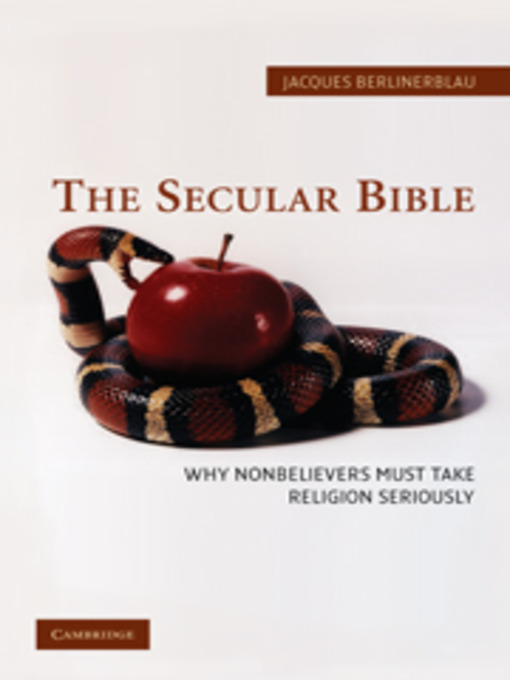In The Secular Bible: Why Nonbelievers Must Take Religion Seriously, Jacques Berlinerblau explores the Hebrew Bible, or Old Testament, though an explicitly critical and secular perspective, reviewing how it has been interpreted from antiquity to today and how these interpretations impact our current political debates. In separate chapters, he looks at how the Bible continues to be invoked in disputes about Jewish identity, intermarriage, and about homosexuality - offering secular readers background and ideas for joining conversations about scripture. Finally, he suggests ways in which secularists in all countries need to pose such questions about all sacred texts and religious phenomena. Cumulatively, the book is a first attempt to re-invigorate a once-estimable secular, intellectual tradition.
- Available now!
- New eBook additions
- New kids additions
- New teen additions
- Most popular
- Always Available eBooks
- See all
- Available now
- AZ's Most Popular Audiobooks
- New Audiobooks
- Always Available Audiobooks
- New kids additions
- New teen additions
- Try something different
- Extremely Funny Audiobooks
- See all


